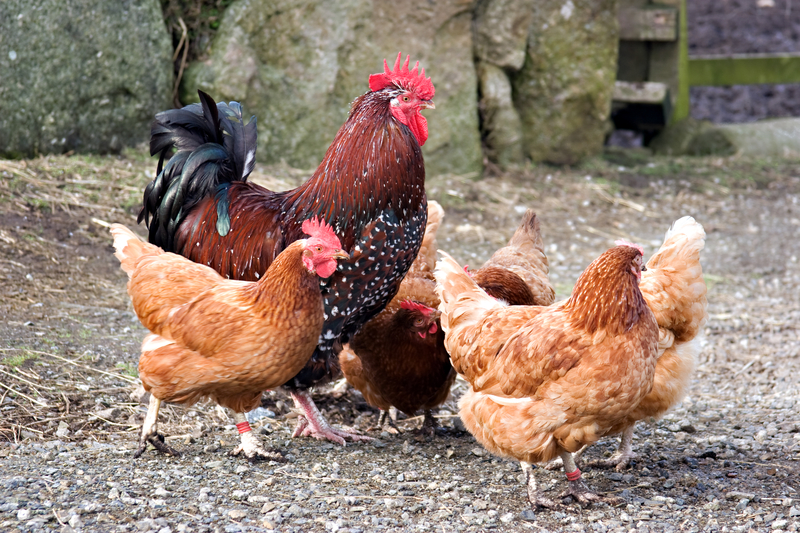Here are the top four things you need to be aware of when keeping backyard chickens in the big city. Some of these obstacles sound daunting, but there's usually an effective way to deal with them.
1. Zoning laws
Despite the growing popularity of backyard flocks, many cities haven’t kept pace and have zoning laws that prohibit the keeping of chickens within city limits. Check with your city’s ordinance codes to find out what (if any) limitations there may be before you order chickens and set up your coop. In some anti-chicken cities, officials are willing to “overlook” small flocks, provided they are well-behaved and don’t upset the neighbors.2. Neighborhood predators
How can you protect your flock? Provide your chickens with a coop. Their coop not only acts as a laying station for their eggs, but it gives them a place to escape the clutches of predators. With a chicken-sized entrance, large dogs and coyotes will be unable to enter the structure. A door that can be closed will provide extra protection from nocturnal visitors such as possums, raccoons and cats. Chicken wire (or poultry netting), buried at least six inches around the base of the coop, will discourage predators from digging in, and help keep your chickens from trying to tunnel out.
3. Free-range dangers
Trouble happens, though, when your chickens notice that the grass on the other side of the fence is actually greener, and then fly over the fence to explore. Not only will the rest of the flock follow, but they’ll luxuriate in their new-found freedom and head down the street, checking out what plants and bugs your neighbors have available. Your neighbors may not appreciate having visitors who scratch their way through their yard, and may chase them off or call the city to complain. Secure your neighbor’s goodwill by offering eggs, and offer to let your girls help turn over their garden plot in the spring. Keep your brood grounded by regularly trimming their wings.4. Poisonous plants
Many decorative plants that look beautiful in landscaping beds are poisonous to chickens. Hydrangeas, tulips, azaleas and other beautiful flowers that gardeners like to grow can be toxic to free-ranging chickens. Look for chicken-friendly plants that can provide snacking opportunities for your brood, while beautifying your yard. Add nasturtiums, sweet potatoes, pumpkins and sunflowers for variety (and safety) in your garden.
We hadn't thought of some of these issues, but now we're really glad we know about them! Have you ever kept chickens in an urban environment? What are some of your top tips? Share your thoughts in the comment section below!
Article Source: Off the Grid News
